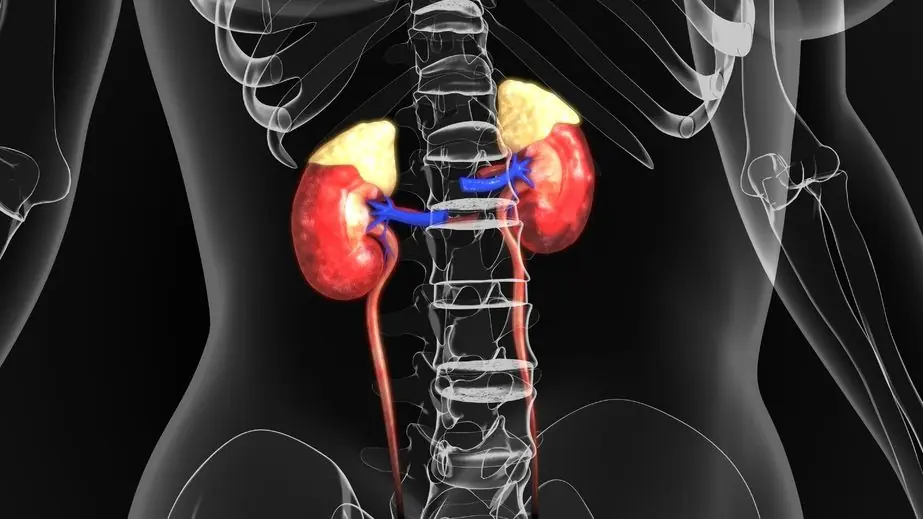
Unusual Morning Signs That May Warn of Cancer Risk
Our bodies often communicate with us in subtle ways, especially in the early stages of illness. While many symptoms we experience in the morning can be harmless or linked to lifestyle habits, some unusual morning signs may serve as early warning signals for more serious conditions, including cancer. Understanding these early signs and not ignoring persistent or unexplained symptoms could be the key to early diagnosis and treatment.
One of the most commonly reported morning symptoms is persistent fatigue. While feeling tired after a poor night’s sleep is normal, chronic fatigue that doesn’t improve with rest can be a warning sign. Some cancers, such as leukemia, colon cancer, or lymphoma, can cause the body to feel constantly drained because cancer cells consume a large amount of the body’s energy and disrupt normal functioning.
Another warning sign is unexplained weight loss, especially if it occurs without a change in diet or exercise habits. If someone notices that they are losing weight rapidly without trying, especially in the early morning when they check their weight, this could indicate a serious underlying issue. Unintended weight loss is one of the most common signs of cancers such as pancreatic, stomach, or esophageal cancer.
Night sweats and waking up drenched in sweat—even in a cool room or without heavy blankets—can also be a cause for concern. While night sweats can be caused by menopause or infections, they are also linked to several types of cancer, including lymphoma. If night sweats become regular and are not connected to other obvious causes, they should be checked by a healthcare professional.
Another sign to watch for is persistent pain in the morning that does not go away or gradually worsens over time. For example, waking up with frequent headaches could point to a brain tumor, while morning back pain could be associated with spinal tumors or pancreatic cancer. The key detail is the consistency and duration of the pain, especially if it disrupts sleep or worsens in the early hours of the day.
Coughing or hoarseness in the morning that doesn’t improve or go away after a few weeks may also be a red flag. Many people overlook a lingering cough, assuming it’s due to allergies or a cold. However, cancers like lung or throat cancer can begin with symptoms that mimic less serious conditions. A morning cough that is dry, painful, or produces blood should never be ignored.
In some cases, people may notice changes in skin color or new lumps while getting dressed in the morning. A new mole or a lump in the neck, armpit, or breast could be an early indicator of melanoma or other cancers. It's important to regularly examine your body and be aware of any new or changing features.
It’s essential to remember that experiencing one of these symptoms does not mean you have cancer. Many non-cancerous conditions can cause similar signs. However, the critical point is persistence and lack of a clear explanation. If a symptom lasts for more than two to three weeks or keeps getting worse, it’s time to consult a healthcare provider.
Early detection is one of the most powerful tools in fighting cancer. Most cancers are more treatable and have better outcomes when found early. Listening to your body and paying attention to unusual morning signs is an important part of personal health care.
In conclusion, while mornings can bring tiredness or discomfort for many reasons, certain unusual signs—such as chronic fatigue, night sweats, unexplained pain, or persistent cough—may warrant further attention. Don’t ignore what your body is telling you. When it comes to your health, it’s always better to be cautious and proactive.
News in the same category


10 Cancer Warning Signs Women Often Overlook

Paralysed man stands again after receiving ‘reprogrammed’ stem cells

🌿 Unlock the Secret Power of Guava Leaves: Transform Your Hair, Skin & Health Naturally

🍯🌿 18 Benefits: Mix Ginger with Cloves and Honey, You'll Thank Me for the Recipe!

This Simple Exercise Lowers Blood Pressure as Effectively as Pills, Study Finds

From Causes to Cures: Everything You Need to Know About Fatty Liver

Symptoms of prostate cancer explained as study reveals how often men should ejaculate per month to prevent it

Why Skipping Breakfast Could Be Harming Your Health: Hidden Dangers You Need to Know

Recognizing the Warning Signs of a Stroke: Why Immediate Action Can Save Lives

Nurse Who Has Seen Over 100 People Die Reveals That Everyone Says The Same Thing Before They Pass

A 48-Year-Old Man Has Been Diagnosed With Stage 4 Cancer And Has Disclosed ONE Common Symptom That He Initially Overlooked

Deaths from six cancers are rising in men and women and symptoms mean they could be easy to miss

The five shocking things that happen to your body once you stop taking Ozempic

Barbara O'Neill: "I Pray You Never Eat These Foods Again"

👣 12 Surprising Ways Your Feet Reveal Early Signs of Liver Disease

‘It’s A Common Theme’: Cancer Doctor Shares What She Regularly Sees In Her Patients Early On

Morning Routines That Keep The Mind Sharp Well Into Your 70s, According To Psychology

Recognize The Signs Of High Stress: 8 High Cortisol Symptoms
News Post

The moment you change your perception is the moment you rewrite the chemistry of your body

10 Cancer Warning Signs Women Often Overlook

Paralysed man stands again after receiving ‘reprogrammed’ stem cells

🌿 Unlock the Secret Power of Guava Leaves: Transform Your Hair, Skin & Health Naturally

🍯🌿 18 Benefits: Mix Ginger with Cloves and Honey, You'll Thank Me for the Recipe!

This Simple Exercise Lowers Blood Pressure as Effectively as Pills, Study Finds

From Causes to Cures: Everything You Need to Know About Fatty Liver

Symptoms of prostate cancer explained as study reveals how often men should ejaculate per month to prevent it

Why Skipping Breakfast Could Be Harming Your Health: Hidden Dangers You Need to Know

Recognizing the Warning Signs of a Stroke: Why Immediate Action Can Save Lives

Nurse Who Has Seen Over 100 People Die Reveals That Everyone Says The Same Thing Before They Pass

A 48-Year-Old Man Has Been Diagnosed With Stage 4 Cancer And Has Disclosed ONE Common Symptom That He Initially Overlooked

Poisoned Easter Eggs Sent To Ex’s New Family — 7-Year-Old Passed Away

Deaths from six cancers are rising in men and women and symptoms mean they could be easy to miss

The five shocking things that happen to your body once you stop taking Ozempic

My Son Helped a Blind Old Man Pay for His Groceries – Today, a Convoy of Black SUVs Pulled Up to Our House

Granddad Forbids Anyone from Touching His Old Mattress, Girl Finds Stash There after His Death

My Stepmom and Her Adult Kids Changed the Locks After My Dad's Funeral – But My Mom Had the Final Word
